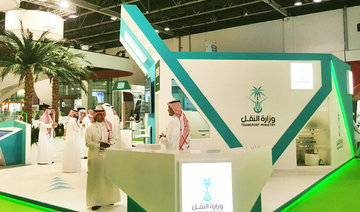RIYADH: Experts at a Riyadh conference on Wednesday tackled the question of whether human researchers will become obsolete in the face of superintelligent machines capable of making groundbreaking discoveries.
A panel discussion during the Global Healthspan Summit, which has Arab News as a media partner, brought together specialists to explore the potential of artificial intelligence in scientific research.
The session, titled “AI — The Greatest Scientist in Waiting?” challenged the scientific community by positing that the new technology could surpass human capabilities in hypothesis generation, experimental design, and data analysis.
Two prominent contributors, Dr. Christoph Benn, director of the JLI Center for Global Health Diplomacy in Switzerland, and Jamie Heywood, CEO and founder of Alden Scientific in the US, took part in the discussion, which was moderated by Dr. Jens Eckstein, investment partner at the Hevolution Foundation in Saudi Arabia.
Heywood opened the conversation by emphasizing the transformative potential of AI.
“Mathematics and data techniques are not particularly new. What changes is the amount of data and the computational power we can apply to it,” he said.
Modern scientific method, when combined with AI, allows researchers to ask more nuanced questions, Heywood said.
Rather than relying on generalized clinical trials, researchers can now tailor inquiries to individual circumstances, thus enhancing the relevance and applicability of findings.
Heywood explained: “With enough variables and carefully designed queries, we can answer critical questions like: What will help me? What might be harmful? How will a change in my life, whether it be a diet or medication, feel?”
Such personalized insights would not be feasible without the integration of modern AI technologies, he added.
However, Heywood also cautioned against the pitfalls of AI, particularly the “garbage in, garbage out” phenomenon.
He explained that while machine learning can generate valuable insights, it is also susceptible to errors if the underlying data is flawed or misinterpreted.
“Machine learning can correct for seasonality errors in data, but it can also produce spurious correlations that traditional scientific methods might not catch,” he warned.
For instance, he recounted how the UK Biobank data suggested a correlation between vitamin D and aging that contradicted prior knowledge, highlighting the importance of critical oversight in AI-assisted research.
Benn echoed these comments, stressing the necessity of using AI responsibly in the context of personalized medicine.
“Is it possible to do modern medicine effectively without machine learning? I’m not even sure,” he said.
Benn said that the complexities of modern health data — comprising thousands of variables — are beyond the capacity of human intuition alone.
“Humans can intuit some relationships, but we can’t analyze data at that level,” he said.
The discussion also explored the ethical implications and regulatory needs surrounding AI in healthcare.
Benn pointed out the importance of establishing frameworks to ensure that AI tools are validated and certified.
“We need to trust these tools, both from the consumer’s perspective and from researchers,” he said.
He shared concerns raised by researchers who were hesitant to market their AI innovations without a clear certification process and accountability measures in place.
“Unless we know whether there is a certification process and whether we will be held accountable for unintended side effects, we will not market our AI tools.”
As the panel concluded, the conversation highlighted a critical juncture for the scientific community, noting that the integration of AI into research has the potential to revolutionize our understanding of health and disease, but also necessitates careful consideration of ethical and regulatory frameworks.
































